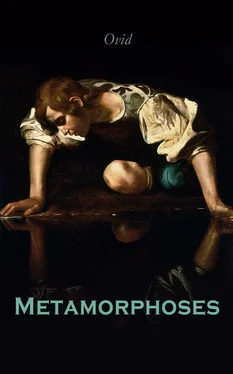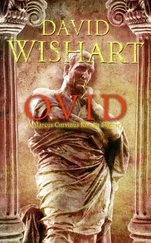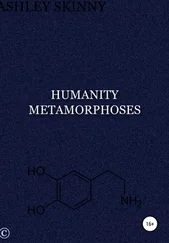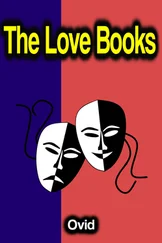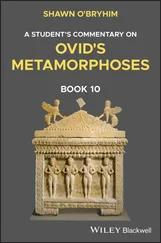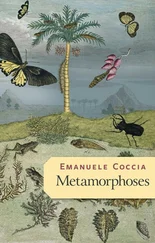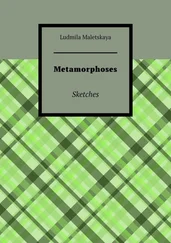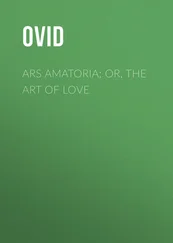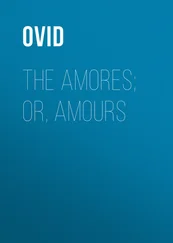Ovid
e-artnow, 2021
Contact: info@e-artnow.org
EAN 4064066499303
INTRODUCTION.
BOOK THE FIRST.
BOOK THE SECOND.
BOOK THE THIRD.
BOOK THE FOURTH.
BOOK THE FIFTH.
BOOK THE SIXTH.
BOOK THE SEVENTH.
BOOK THE EIGHTH.
BOOK THE NINTH.
BOOK THE TENTH.
BOOK THE ELEVENTH.
BOOK THE TWELFTH.
BOOK THE THIRTEENTH.
BOOK THE FOURTEENTH.
BOOK THE FIFTEENTH.
Table of Contents
P. Ovidius Naso—commonly known as Ovid—was born at Sulmo, about, ninety miles from Rome, in the year 43 B.C. His father belonged to an old equestrian family, and at an early age brought his son to Rome, where he was educated under the most distinguished masters. Very little is known of the poetís life, except that which is gathered from his own writings. After finishing his education at home he visited Athens, in company with the poet Macer, for the purpose of completing his studies, and before returning visited the magnificent cities of Asia Minor and spent nearly a year in Sicily.
Although as a young man Ovid showed a natural taste and inclination for poetical composition, he was by no means encouraged to indulge in this pursuit. His father thought that the profession of law was much more apt to lead to distinction and political eminence than the vocation of a poet. He therefore dissuaded his son from writing poetry and urged him to devote himself to the legal profession. Compliance with his father’s wishes led him to spend much time in the forum, and for a while poetry was abandoned. Upon attaining his majority, he held several minor offices of state; but neither his health nor his inclinations would permit him to perform the duties of public life. Poetry was his love, and in spite of the strong objections of his father, he resolved to abandon the law courts and devote himself to a more congenial occupation. He sought the society of the most distinguished poets of the day, and his admiration for them amounted almost to reverence. He numbered among his intimate friends the poets Macer, Propertius, Ponticus and Bassus, while Æmilius Macer, Virgil’s contemporary, used to read his compositions to him, and even the fastidious Horace, it is said, occasionally delighted the young man’s ear with the charm of his verse.
Ovid was married three times. His first wife he married when little more than a boy, and the union does not seem to have been a happy one, though it was probably due to no fault of the wife. His second wife seems also to have been of blameless character, but his love for her was of short duration. His third wife was a lady of the great Fabian house and a friend of the Empress Livia. She appears to have been a woman in every way worthy of the great and lasting love which the poet lavished upon her to the day of his death.
Up to the age of fifty Ovid had lived a life of prosperity and happiness. Though not a wealthy man, his means were such as to permit him to indulge in the luxuries of refined life, and his attainments as a poet had surrounded him with a circle of most desirable friends and admirers. He had even obtained the favor and patronage of the royal family. About the year 8 A.D. he, however, incurred the great displeasure of Augustus, and was ordered by him to withdraw from Rome and dwell in the colony of Tomi, on the shore of the Euxine sea. Leaving behind him a wife to whom he was devotedly attached he obeyed the edict of his emperor and entered upon an exile from which he was destined never to return. He died in banishment at Tomi in the year 18 A.D.
The exact reason for Ovid’s banishment has never been clear, though there have been many conjectures as to the cause. About two years previous to his exile Ovid had published a composition which had greatly displeased Augustus, on account of its immoral tendency. Almost coincident with this publication was the discovery of the scandal relating to Julia, daughter of the emperor. It is probable that the proximity of these two events tended to intensify the imperial displeasure, and when some time later there was made public the intrigue of the emperor’s granddaughter, the indignation of Augustus gave itself vent in the banishment of Ovid.
The writings of Ovid consist of the Amores in three books; the Heroic Epistles , twenty-one in number; the Ars Amatoria ; the Remedia Amoris ; the Metamorphoses , in fifteen books; the Fasti , in six books; the Tristia , in five books; the Epistles , in four books, and a few minor poems. In the following pages will be found a translation of the Metamorphoses .
The Metamorphoses of Ovid are a compendium of the Mythological narratives of ancient Greece and Rome, so ingeniously framed, as to embrace a large amount of information upon almost every subject connected with the learning, traditions, manners, and customs of antiquity, and have afforded a fertile field of investigation to the learned of the civilized world. To present to the public a faithful translation of a work, universally esteemed, not only for its varied information, but as being the masterpiece of one of the greatest Poets of ancient Rome, is the object of the present volume.
To render the work, which, from its nature and design, must, of necessity, be replete with matter of obscure meaning, more inviting to the scholar, and more intelligible to those who are unversed in Classical literature, the translation is accompanied with Notes and Explanations, which, it is believed, will be found to throw considerable light upon the origin and meaning of some of the traditions of heathen Mythology.
In the translation, the text of the Delphin edition has been generally adopted; and no deviation has been made from it, except in a few instances, where the reason for such a step is stated in the notes; at the same time, the texts of Burmann and Gierig have throughout been carefully consulted. The several editions vary materially in respect to punctuation; the Translator has consequently used his own discretion in adopting that which seemed to him the most fully to convey in each passage the intended meaning of the writer.
The Metamorphoses of Ovid have been frequently translated into the English language. On referring to Mr. Bohn’s excellent Catalogue of the Greek and Latin Classics and their Translations, we find that the whole of the work has been twice translated into English Prose, while five translations in Verse are there enumerated. A prose version of the Metamorphoses was published by Joseph Davidson, about the middle of the last century, which professes to be “as near the original as the different idioms of the Latin and English will allow;” and to be “printed for the use of schools, as well as of private gentlemen.” A few moments’ perusal of this work will satisfy the reader that it has not the slightest pretension to be considered a literal translation, while, by its departure from the strict letter of the author, it has gained nothing in elegance of diction. It is accompanied by “critical, historical, geographical, and classical notes in English, from the best Commentators, both ancient and modern, beside a great number of notes, entirely new;” but notwithstanding this announcement, these annotations will be found to be but few in number, and, with some exceptions in the early part of the volume, to throw very little light on the obscurities of the text. A fifth edition of this translation was published so recently as 1822, but without any improvement, beyond the furbishing up of the old-fashioned language of the original preface. A far more literal translation of the Metamorphoses is that by John Clarke, which was first published about the year 1735, and had attained to a seventh edition in 1779.
Читать дальше
